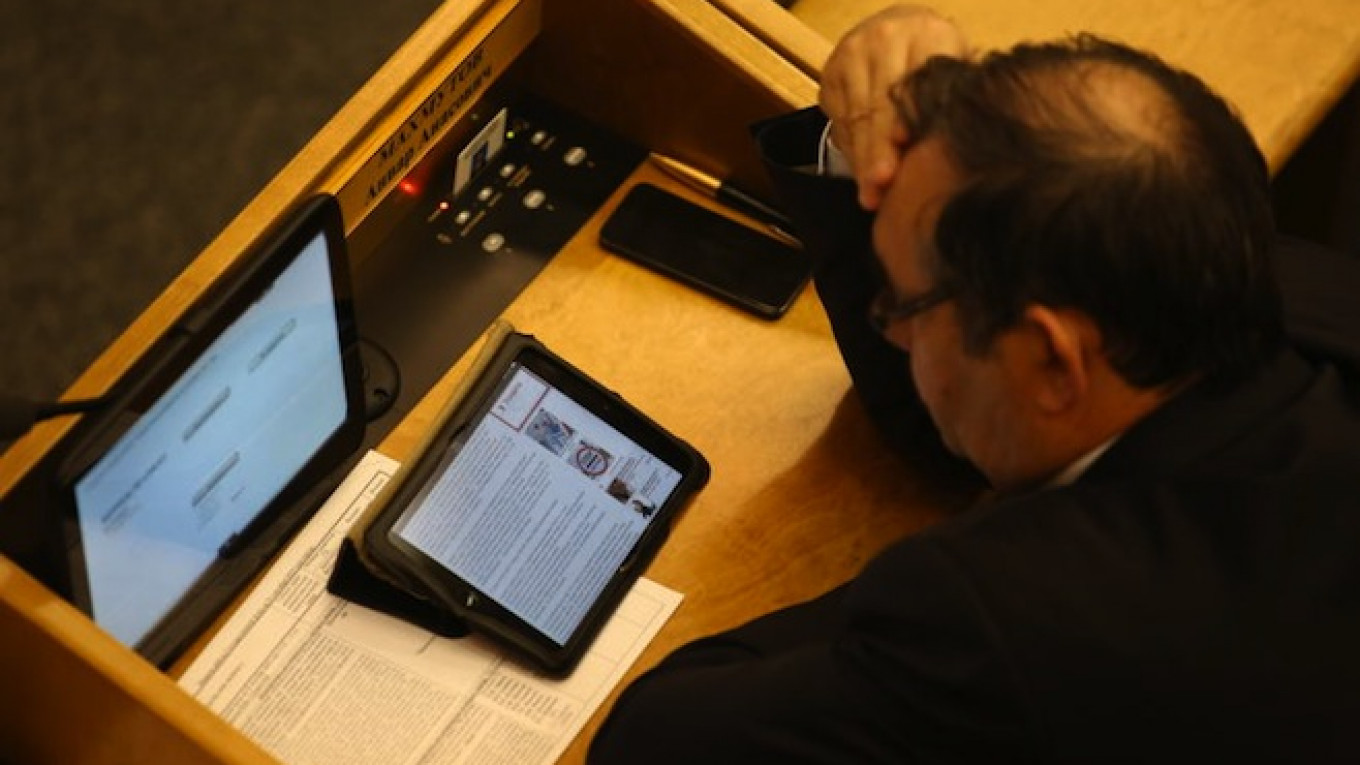Russian officials will be barred from using foreign software from next year if a Russian version exists. The move, which is aimed at boosting Russia's national security and the country's tech industry, could cost foreign firms hundreds of millions of dollars in annual revenues.
The rules apply to local and national government entities and come into force on Jan. 1, 2016, according to an order signed by Prime Minister Dmitry Medvedev and published on the government's website on Friday.
The order is part of a drive to wean Russia off imports in key areas of industry that was accelerated after Moscow's falling out with the West over Ukraine last year.
It is also linked to fears of spying and sabotage by foreign intelligence services, who are feared to have access to software and equipment developed in their countries. This anxiety has led to calls to boycott iPhones, build a Russian operating system to rival Microsoft's Windows, and tighten control of the Internet.
As Communications and Mass Media Minister Nikolai Nikiforov put it a year ago: "We stand for complete sovereignty of information."
Under Friday's order, authorities will draw up a register of Russian computer programs that will verify the Russianness of software and promote its use.
Foreign software giants such as SAP, Oracle, IBM and Microsoft recorded sales in Russia worth around $1.4 billion last year, accounting for some three-quarters of the market, according to news agency RBC. This included sales worth 20 billion rubles ($300 million) to government entities, the Kommersant newspaper reported.
It is not clear how much foreign-made software has no analogue in Russia, but the government is promoting local production. It also seeks to train more programmers, though the most talented often end up in the tech hubs of California.
Earlier this month Kommersant obtained a letter from the Association of European Businesses, a Moscow lobby group, warning that the planned law restricting use of non-Russian software would likely see foreign companies freeze investment or pull out of Russia.
Contact the author at [email protected]
A Message from The Moscow Times:
Dear readers,
We are facing unprecedented challenges. Russia's Prosecutor General's Office has designated The Moscow Times as an "undesirable" organization, criminalizing our work and putting our staff at risk of prosecution. This follows our earlier unjust labeling as a "foreign agent."
These actions are direct attempts to silence independent journalism in Russia. The authorities claim our work "discredits the decisions of the Russian leadership." We see things differently: we strive to provide accurate, unbiased reporting on Russia.
We, the journalists of The Moscow Times, refuse to be silenced. But to continue our work, we need your help.
Your support, no matter how small, makes a world of difference. If you can, please support us monthly starting from just $2. It's quick to set up, and every contribution makes a significant impact.
By supporting The Moscow Times, you're defending open, independent journalism in the face of repression. Thank you for standing with us.
Remind me later.






